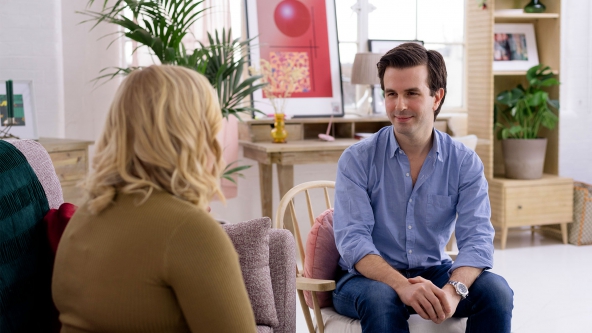Image: Mattel
Although the UK has a thriving entrepreneurial ecosystem, female entrepreneurs still face a number of barriers to success. We talked to Zoe Chambers of Octopus Ventures to discuss some of the challenges, and what needs to be done to overcome them.
Whether we realise it or not, all of the decisions we make are influenced by the world around us. Our cultural background, upbringing, personal experiences and the society we live in can all lead to unconscious or implicit bias, particularly when it comes to gender stereotypes.
There are still many obstacles and challenges for women launching or developing a business. And gender stereotypes have been identified as among the biggest. This is one of the key reasons only a tenth of growing UK firms with revenues between £1 million and £250 million are run by women. (In the US, this figure is closer to a fifth.)
At Octopus, we’re working hard to help break down the barriers that hold female entrepreneurs back. The first step is recognising that unconscious bias exists, as Zoe Chambers, Early-Stage Investor at Octopus Ventures told us. Zoe spent a day with her colleagues on the Future of Industry subteam, exploring gender stereotypes and asking what an unlevel playing field truly means in the world of venture capital.
They used Harvard Business School’s ‘Project Implicit’ tests to reveal their own, hidden biases. These tests have been developed by a team of scientists researching new ways of understanding attitudes, stereotypes and other unconscious biases that influence perception, judgment and action.
Zoe was surprised by her results. “It was really interesting to find out what your brain defaults to,” she says. “I was shocked to learn that I’m mildly biased to associate the word ‘scientist’ with men.”
Becoming aware of these implicit biases means teams like Zoe’s can keep themselves, and each other, in check.
The impact of these sorts of stereotypes was highlighted in a report we sponsored last year: Women In Leadership, published last year by the All-Party Parliamentary Group (APPG) for Entrepreneurship.
The APPG surveyed more than 500 entrepreneurs, and revealed that the top three issues holding women back from greater entrepreneurial success were:
- Conformity to social expectations
- The challenge of overcoming gender stereotypes or gender roles
- The burden of family responsibilities
The report also warned that gender stereotypes can lead to fewer young women taking up STEM subjects (Science, Technology, Engineering, and Mathematics) at school and university.
Subjects like science and maths are often seen as more ‘masculine’. Even in cases where girls excel in these fields, uptake is lower than among their male counterparts.
This has a knock-on effect on female representation in STEM businesses. Women make up just 14.4% of all people working in STEM in the UK – far short of the national goal of a 30% critical mass.
In the world of venture capital, recognising and overcoming unconscious gender biases ensures that talented female entrepreneurs don’t miss out on crucial early-stage investment. Entrepreneurs like Noor Shaker – computer scientist and CEO of GTN, which revolutionises drug discovery through machine learning. In May 2018, GTN raised £2.1 million in seed funding in a round led by Octopus Ventures and Pentech.
Noor is just one of the many ground-breaking businesswomen dispelling the stereotype that women can only become ‘lipstick entrepreneurs’ or run lifestyle businesses.
As Zoe tells us, Octopus Ventures always seeks the best of the best, first and foremost. But she also recognises the need to seek out and champion female entrepreneurs, like Noor.
“It’s important that we have more women on both sides of the table – investors and entrepreneurs – to create a truly level playing field,” she says. And she’s confident that the tide is turning.
“In five years’ time, I think so much will have changed. We’ll see more female angel investors, and more young women taking up STEM subjects. And instead of talking about great female leaders, we’ll be talking about great leaders generally.”
Unconscious bias and gender stereotypes are not going to disappear overnight. But the signs are that things are changing for the better. We’ll keep doing our part to make sure that happens.


